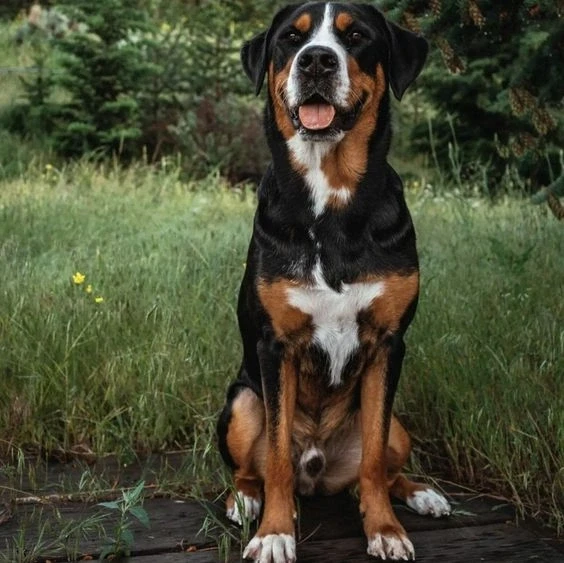
Greater Swiss Mountain Dog
About
The Greater Swiss Mountain Dog is a devoted, strong, and gentle breed that makes an excellent companion for families, singles, and active individuals. With their impressive build, friendly demeanor, and protective nature, these dogs thrive in homes that provide regular exercise, training, and plenty of love and attention. Whether as a family pet or a working partner, the Swissy’s loyalty, intelligence, and versatility make it a cherished member of any household.
 Breed Size
Breed Size
-
Weight (Male)
52-63 kg
-
Weight (Female)
38-50 kg
-
Height (Male)
59-72 sm
-
Height (Female)
59-72 sm
 Coat
Coat
-
Fur Type
Smooth
-
Color
One color
 Care
Care
-
Walk
>45 minutes/day
-
Breed group
Working Group
-
Breed Size
XL
-
Demeanor category
Alert/Responsive
 Breed Traits
Breed Traits
-
Barking
-
Good with young children
-
Drooling
-
Energy level value
-
Grooming frequency value
-
Good with other dogs
-
Trainability
 Breeds Club Recognition
Breeds Club Recognition
-
Trainability Category
>Agreeable
-
Temperament
>Faithful, Family-Oriented, Dependable
Description
The Greater Swiss Mountain Dog is a large, powerful working breed, originally bred in Switzerland in the 18th century for herding, guarding, and pulling carts. This breed descends from ancient mastiff-type dogs, resulting in an intelligent, strong, and highly loyal companion.
-
Origin: Switzerland, developed for herding and draft work.
-
Smart and trainable: Quick learner with a strong work ethic.
-
Loyal and protective: Forms deep bonds with its family.
-
Energetic and hardworking: Requires daily exercise and mental stimulation.
-
Short, dense coat: Weather-resistant but sheds seasonally.
The Greater Swiss Mountain Dog is a devoted and dependable companion, excelling in herding, obedience, and protection work. With proper training and early socialization, they become well-mannered, affectionate pets suited for active families and experienced owners.
